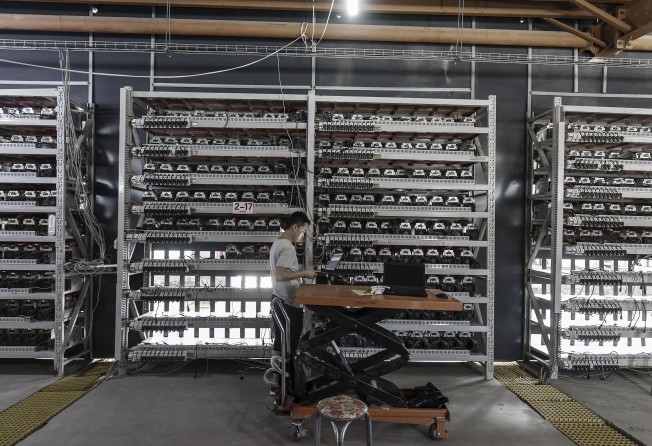German private equity fund bets on bitcoin mining in cryptocurrency slump
- The fund manager says investors can take cue from bitcoin’s 80pc decline to bet on its mining fund

While thousands of miners in China, hurt by the recent slump in bitcoin, have called it a day, German private equity firm Xolaris is preparing to launch a US$50 million bitcoin farming fund targeting Asian investors.
The Munich-based private equity manager’s entry into the Asian market, including a new office set up in Hong Kong in July, comes at a time when cryptocurrencies have lost as much as US$700 billion in market capitalisation this month.
Stefan Klaile, managing partner of Xolaris Group, said subscription for the Asian fund would start in December after the launch of its European mother fund this week.
The European fund aims to raise €30 billion to €50 billion, with a targeted annual return of 21 per cent. The proceeds will be used to fund the expansion of an existing bitcoin mining farm housed in a data centre in Sweden.
“For our fund, we see the current price decline in bitcoin rather positively,” said Klaile. “Bitcoin mining return is affected by a combination of drivers including bitcoin price levels, hashrate, mining difficulty and the price of mining equipment such as servers. We see recent developments as giving [our mining farm operator] the opportunity to increase market share.”
Hashrate, which measures the processing power of a cryptocurrency network, has dropped significantly in recent months, to 36 PH (petahash per second) on November 25 from 60 PH at the end of October, a trend that Klaile said underlined the nervousness among miners towards the bitcoin slump.
The world’s third largest mining pool, F2pool, has reportedly said that up to 800,000 bitcoin miners in China had shut down since mid-November as those using older versions of mining gears were hit by the equipment’s higher operating costs. A bitcoin miner contributes computing power to generate new blocks and process transactions in exchange for bitcoin as reward.
But Klaile said the current drop in the bitcoin network processing power opened up opportunities for mining farm operators, with less players competing for a finite pool of bitcoin supply, capped at 21 million by its unnamed inventor under the pseudonym Satoshi Nakamoto. About 80 per cent of that supply has already been mined as of June.
“As private equity, we are financing real assets, which is the mining infrastructure and data centre that our funds invest in. The success of our funds and mining farm is dependent on bitcoin performance,” Klaile said. “But just like the car industry, a car maker does not stop building cars just because the market for used cars has once collapsed.”
Klaile said the two bitcoin farming funds did not take any trading risks of cryptocurrencies, and would dispose of the bitcoin generated from the mining process.
But he did not say if the funds’ managers would offload the bitcoin immediately or keep the cryptocurrency in a reserve during the funds’ tenure, only to sell at a certain level to buffer mining losses.
Xolaris, which manages five other private equity funds in renewable energy and real estate in Germany, is regulated as an alternative investment fund manager by the German Financial Supervisory Authority.
Podcast: death or rebirth for bitcoin and what China is doing about it